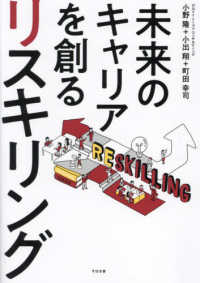Full Description
Battle lines have been drawn over involuntary treatment. On one side, there are those who oppose involuntary psychiatric treatments under any condition. Activists who take up this cause often don't acknowledge that psychiatric symptoms can render people dangerous to themselves or others. They also don't allow for the idea that the civil rights of an individual may be at odds with the heartbreak of a caring family. On the other side are groups pushing for increased use of involuntary treatment. These proponents are quick to point out that people with psychiatric illnesses often don't recognize that they are ill, which (from their perspective) makes the discussion of civil rights moot. They may gloss over the sometimes dangerous side effects of psychiatric medications, and they often don't admit that patients, even after their symptoms have abated, are sometimes unhappy that treatment was inflicted upon them. In Committed, psychiatrists Dinah Miller and Annette Hanson offer a thought-provoking and engaging account of the controversy surrounding involuntary psychiatric care in the United States.
They bring the issue to life with first-hand accounts from patients, clinicians, advocates, and opponents. Looking at practices such as seclusion and restraint, involuntary medication, and involuntary electroconvulsive therapy-all within the context of civil rights-Miller and Hanson illuminate the personal consequences of these controversial practices through voices of people who have been helped by the treatment they had as well as those who have been traumatized by it. The authors explore the question of whether involuntary treatment has a role in preventing violence, suicide, and mass murder. They delve into the controversial use of court-ordered outpatient treatment at its best and at its worst. Finally, they examine innovative solutions-mental health court, crisis intervention training, and pretrial diversion-that are intended to expand access to care while diverting people who have serious mental illness out of the cycle of repeated hospitalization and incarceration. They also assess what psychiatry knows about the prediction of violence and the limitations of laws designed to protect the public.
Contents
Before We Get StartedPart One: The Patients Chapter 1: Eleanor and the Case against Involuntary Hospitalization Chapter 2: Lily and the Case for Civil CommitmentPart Two: The Battleground Chapter 3: Those in Favor of Involuntary Treatments E. Fuller Torrey and the Treatment Advocacy Center Ronald Honberg and NAMI Paul Summergrad and the American Psychiatric Association Chapter 4: Those against Involuntary Treatments The Citizens Commission on Human Rights Cecelia Brown and Janet Foner and MindFreedom International Daniel Fisher and the National Empowerment Center Ira Burnim and the Bazelon CenterPart Three: Civil Rights Chapter 5: Eleanor and Lily and the Process of Civil Commitment Chapter 6: Christina Schumacher and the History of Civil Commitment LawsPart Four: Hospitalization Chapter 7: Officer Scott Davis and Law Enforcement Chapter 8: Dr. Leonard Skivorski and the Emergency Department Chapter 9: Eleanor's Hospital Experience Chapter 10: Dr. Ray DePaulo and Inpatient Psychiatry at a University Hospital Chapter 11: Dr. Steven Sharfstein and Dr. Bruce Hershfield and Free-standing Psychiatric Hospitals Chapter 12: Dr. Annette Hanson and the Use of Seclusion and Restraint Chapter 13: Anthony Kelly and Involuntary Medications Chapter 14: Jim and Involuntary Electroconvulsive TherapyPart Five: Involuntary Outpatient Commitment Chapter 15: Marsha and Involuntary Outpatient Commitment Chapter 16: Outpatient Commitment by the Books Chapter 17: The Honorable Jack Lesser and Mental Health CourtsPart Six: A Danger to Self or to Others Chapter 18: Dan and Guns and Mental Illness Chapter 19: Bryan Stanley and Violence and Psychiatric Illness Chapter 20: Amy and Involuntary Treatment for Suicide Prevention Chapter 21: Will Forcing Treatment on People with Psychiatric Disorders Prevent Mass Murders?Part Seven: Future Directions Chapter 22: Transforming the BattlegroundReferencesAcknowledgments








